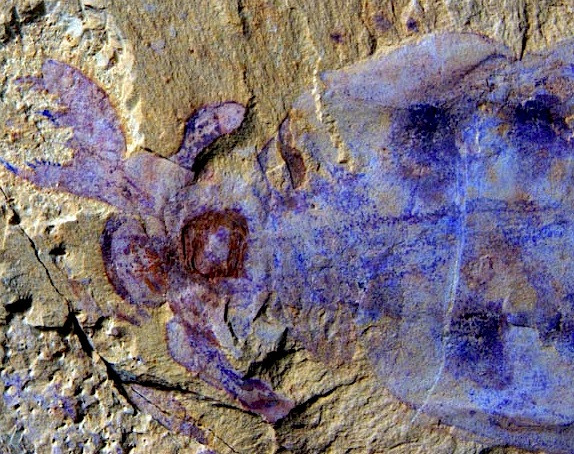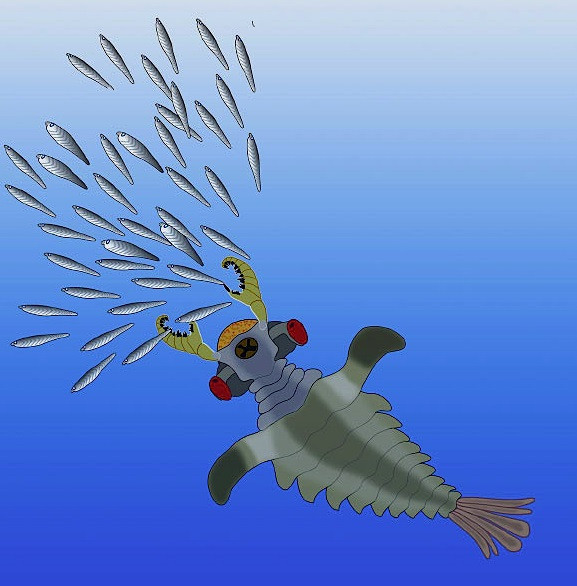A bit of a prawn: Did human brains evolve from shrimp-like creatures?
Scientists find world's oldest brains inside 500-million year old fossils of shrimps

Scientists from the Natural History Museum will provoke heated debate at a major conference on the origins of the brain tomorrow (9 March) when they put forward a controversial theory: that the human brain may have evolved from primitive shrimps which first emerged 520 million years ago.
Animals first evolved brains over 600m - 700m years ago
Evidence for the theory comes from the discovery of the world's earliest brain, discovered in fossils discovered in China's Yunnan province. Usually soft tissue like brain and heart are not preserved during fossilization. However, the Chinese samples were preserved because they were in fossil beds with unusual qualities.
Such was the detail preserved in fossils of the ancient creatures – Lyrarapax, Fuxianhuia and Alalcomenaeus – that scientists were able to compare them to modern creatures and were astonished by their apparent similarities despite being separated by over half a billion years.
"The layout and structure of these creatures' brains have many similarities in what we see in modern creatures," the museum's Xiaoya Ma told the Sunday Times. "It suggests animals first evolved brains over 600-700 million years ago and that was the basis for what we see in most animals today."

The findings are important because they imply the first brain evolved before the big split between invertebrates – including insects, spider sand crabs – and vertebrates including fish, mammals and human beings. This may explain why the nervous systems of all living creatures have many similarities.
On Monday (9 March) Ma's colleague Greg Edgecombe will present the team's findings to a conference on the origins of the brain at the Royal Society in London, but the theory could provoke heated debate because other scientists believe the brain evolved many times among different species.
Leonid Moroz, professor of neuroscience at Florida University, will announce his own theory at the conference: that the brain evolved separately in up to 11 different groups.
In a summary of his findings on the university website Moroz says: "Astonishingly, our analysis reveals that neural centralisation and formation of brains might have independently evolved at least seven to 11 times during the 550 million years of animal evolution.
"The hypothesis we are testing is that the complex brains we find in representatives of existing animal phyla are the result of parallel evolution of different ancestral cell lineages."
© Copyright IBTimes 2025. All rights reserved.






















